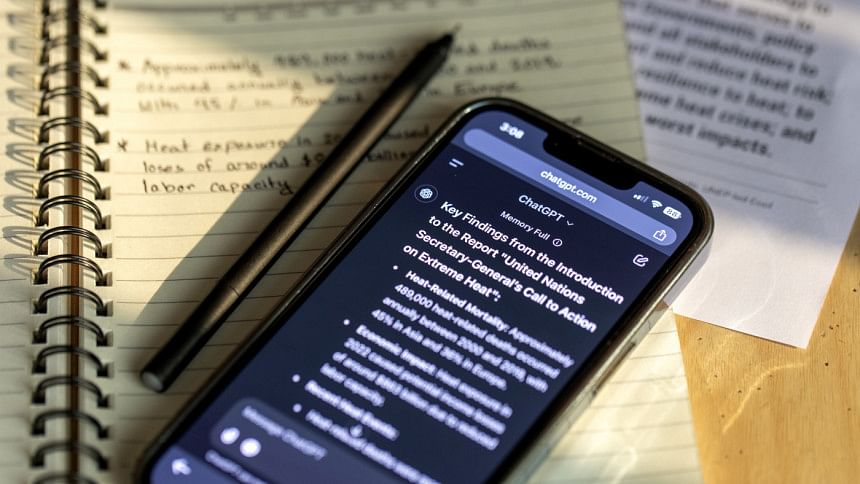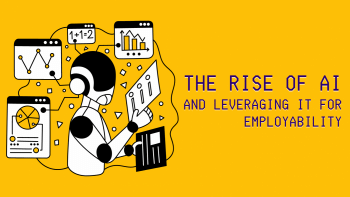How to use AI efficiently and ethically for studying

The subject of using artificial intelligence (AI) for studying is a controversial one, to say the least, even though this practice has been going on for quite some time now. The unease surrounding AI usage in one's studies is understandable. However, students often blur the lines between academic integrity and genuine learning when it comes to using AI. Whether it's due to time constraints, multiple assignments piling up, or just procrastination, AI often becomes a 'quick-fix' tool of sorts rather than a tool to help one learn better or faster.
Even so, as much as some teachers would sternly advise us to steer clear of AI when it comes to academic obligations, it cannot be denied that AI can serve as a crucial tool when it comes to learning. Hence, to find a proper balance, here are some efficient tips for using AI which will not compromise your learning.
Personalised learning
Everyone's learning curve is different. While some are content with textual content, others thrive with visuals. With rapid advancements in AI, more and more tools are being unveiled to support and sustain your learning. As a result, no matter what your learning style is, finding the right method will ensure that you are thoroughly understanding the concepts and actually learning instead of using AI as a crutch to get a passing grade.
Summarising content
For writing-heavy tasks requiring you to go through textbooks and documents, AI can come in handy with summaries, especially if it's in a chapter-wise format. That way, you can decipher which bits are relevant to your learning and go back and peruse those sections from your reading materials. This way, you can optimise your time while also getting the actual reading done.
Making study planners
If you are overwhelmed with overlapping academic tasks and have no clue where to begin, asking AI for study planners can be extremely fruitful. Not only will you be provided with detailed timely breakdowns for each task, coupled with well-needed breaks, but also tips on how to stay on track and what to prioritise. This step prevents you from succumbing to the pressure and helps you stay focused.
Asking for feedback
Before AI, whenever you got stuck at a coding problem or weren't exactly pleased with the style of your essay, your only option was to wait around for a teacher to get back with their assistance or feedback. However, with AI's constant availability, you can get instantaneous solutions, whether it's finally understanding how to restructure your writing or knowing what went wrong in your balance sheet. Thus, you can very easily learn where your weaknesses and strengths lie.
Using AI-powered flashcards
Through this method, complex concepts are broken down into simpler fragments to aid your comprehension. As you progress, the difficulty of the flashcards is adjusted. You can also instruct the AI to make flashcards in the form of quizzes or games to better aid your learning. Writing down the content from the flashcards can also serve as a note-taking strategy, enabling you to remember the content better.
It is evident that AI will only evolve with time, and there is no way to ignore its impact. However, as students, we must understand that consistently relying on AI to speed through homework and assignments without truly engaging in the learning process ultimately does more harm than good. Such dependence will only dwindle our creativity, problem-solving skills, and genuine curiosity. Hence, a middle ground is necessary, to ensure that AI only serves as a supplement and not a replacement to actual learning.
Anica Bushra Rahmaan is a student of Economics at BRAC University. Reach her at [email protected]


 For all latest news, follow The Daily Star's Google News channel.
For all latest news, follow The Daily Star's Google News channel. 









Comments